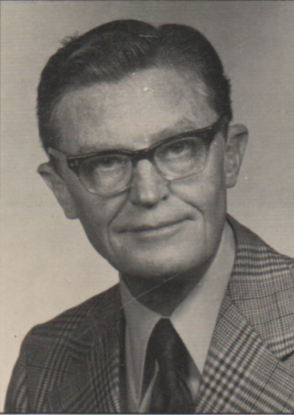In November 1926, F.R. Scott was called to the offices of McGill University principal Sir Arthur Currie. The man behind the great victory at Vimy Ridge had been shaken by the student's new McGill Fortnightly Review. Currie worried that the publication might harm the university's "esprit de corps", that it might adopt "dangerous doctrines", that it might descend into things "Bolsheviki". The principal suggested that the publication would benefit from a board of advisors, but Scott stood his ground. Such a body, he said, would send a message to students that they could not be trusted.
I wonder whether Linda Frum experienced anything similar after running afoul of the university three decades ago. Was then-principal David Johnson at all concerned about the politics espoused by her McGill University Magazine? Perhaps not, but administration did take dim view of Ms Frum's appropriation of the institution's name.
A very good account of the meeting between Scott and Currie is found in The Politics of the Imagination, Sandra Djwa's biography of the poet, lawyer, essayist, civil rights champion and Dean of McGill University Faculty of Law. Whether there was ever a meeting between Frum, now a Senator thanks to Stephen Harper, and Principal Johnson, now Governor General thanks to Stephen Harper, I cannot say. There is no biography of Linda Frum.
And why not?
It's been more than four years since the prime minister recognized her talents as a fundraiser for the Canadian Alliance and Conservative Party. Those of us with a literary bent see greater accomplishment in Linda Frum's Guide to Canadian Universities (1987, rev 1990), a work that might be considered alongside Scott's Social Reconstruction and the B.N.A. Act (1934), Civil Liberties and Canadian Federalism (1959), and Essays on the Constitution: Aspects of Canadian Law and Politics (1977).
In 1970, Scott declined the offer of a Senate appointment.
It goes without saying that we all look forward to Senator Frum's next book. Until then, we must be satisfied with rereading past work… which brings me, at long last, to the January/February 1984 edition of McGill
Never let it be said that the Magazine didn't attract francophones, or that it had no sense of humour*:
All kidding aside, what are we to make of David Martin's absence and the fact that the position of Publisher has been eliminated? Just who's in charge here? Where does the American Institute of Educational Affairs buck stop? How it is that fourteen contributors managed no more than six pieces over a two-month period?
Seems awfully unfair to Editor Frum, who is forced to carry much of the issue. She should not be blamed for botching her interviews with Allan Gotlieb and United States Deputy Assistant Secretary of State for Canada James Medas. When reading the silly review of Uncommon Valor, the movie set in "Vietman", please remember that she had pages to fill. Signs of overwork are everywhere, even in the first sentences of her editorial:
Canada and Poland are both nations of about 25 million people**. They both neighbour one of the super-powers. Russia was invaded from Poland in 1812*** and 1941****; America was invaded from Canada in 1777***** and 1813******.But for my self-imposed asterisk limit, I would quote more. Frum's point, which she does reach eventually, is that we Canadians are better off than the Poles. We should be less critical of Ronald Reagan, more critical of Pierre Trudeau, thank the Americans for our freedoms and… I don't know, apologize for returning fire in 1777 and 1813?
As I say, overwork.
She's in the Senate now.
She's earned her rest.
Related posts:
* The words quoted, belonging to Linda Frum, reference Ronald Reagan's Under Secretary of State for Political Affairs Lawrence Eagleburger, who in 1983 at a private gathering compared the prime minister's efforts to broker peace between East and West to "pot-induced behaviour by an erratic leftist.'' Not really the same thing, of course. Again, overwork.
** In 1984, the population of Canada was 25.6 million. The population of Poland at 36.9 million.
*** By France.
**** By Germany.
***** Countering an invasion by the Continental Army.
****** Countering an invasion by the American Army and various Militia.
** In 1984, the population of Canada was 25.6 million. The population of Poland at 36.9 million.
*** By France.
**** By Germany.
***** Countering an invasion by the Continental Army.
****** Countering an invasion by the American Army and various Militia.





































